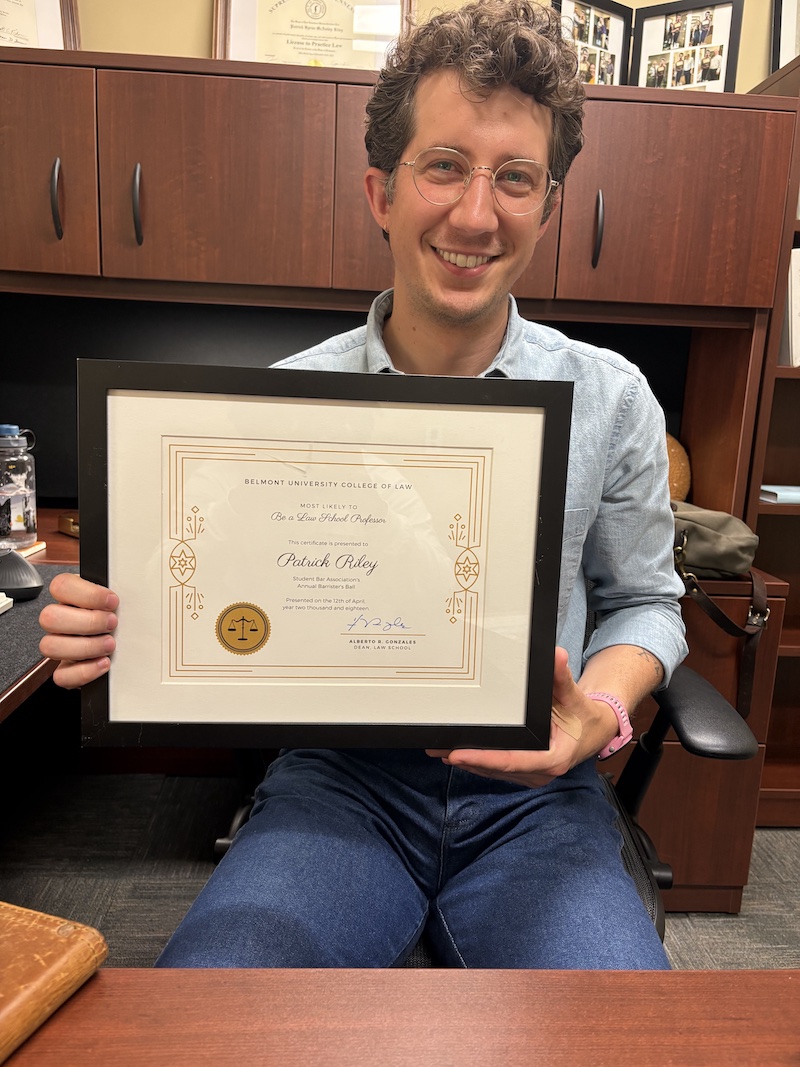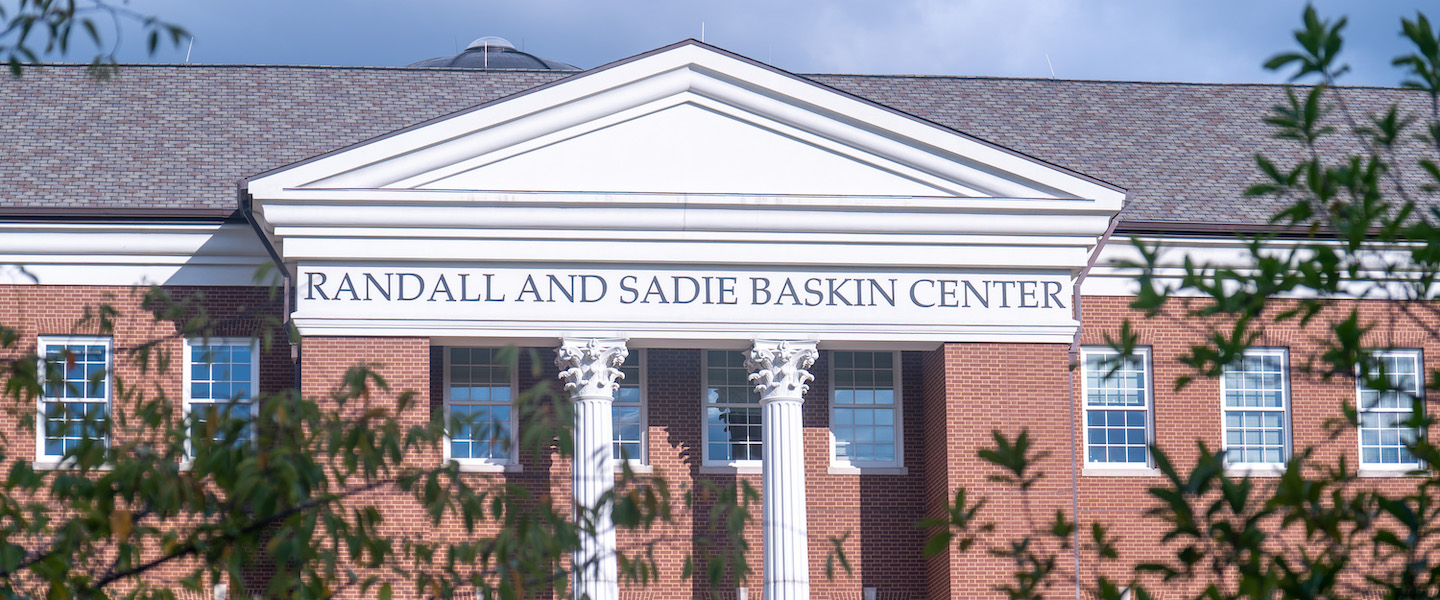Riley paying forward law school experience to Belmont’s next generation of attorneys
 Some people are born to be law school professors; others have it thrust upon them. For alumnus Patrick Riley (J.D. ‘18), both might be true. “I always thought I would be a law school professor at some point,” he said. “I was voted ‘most likely to be a law school professor’ at the Barrister’s Ball when I was a third-year law student.”
Some people are born to be law school professors; others have it thrust upon them. For alumnus Patrick Riley (J.D. ‘18), both might be true. “I always thought I would be a law school professor at some point,” he said. “I was voted ‘most likely to be a law school professor’ at the Barrister’s Ball when I was a third-year law student.”
Whether by coincidence or destiny, this year marks Riley’s first as an assistant professor of legal practice at Belmont Law — a decade after he first walked its halls as a hopeful student.
Drawn Back to Belmont
Riley was drawn to Belmont’s College of Law for its small class sizes, proximity to home and personalized faculty support. “It was just the obvious choice,” he said. “I also liked that it was small, and I didn’t have to uproot my life.”
In his new role, the Nashville native brings his full-circle journey, real-world experience and passion for mentorship into the classroom. There, he equips future attorneys with the same practical tools and professional confidence that shaped his own journey.
“The transition to faculty is both really great and bizarre,” he said. “Every other time I’ve been in this building I was a student. Now having professors that I had immediately treat me like a peer is very cool — but a little surreal.”
From Student Leader to Legal Professional
As a student, Riley immersed himself in the law school community. He participated in multiple field placements, served as president of the Board of Advocates and was a member of the Belmont Law Review. Moot court became a cornerstone of his experience, first as a competitor and later as an adjunct coach.
“I was so shy my first year. I never saw myself as a litigator,” Riley said. “But Professor Amy Moore saw something in me. She pushed me to try out for moot court, and it ended up being one of the best decisions I ever made.”
That encouragement had a lasting impact. “They expected a lot of you, but they were also personally invested in your growth,” he said. “Those relationships shaped not only my confidence but my career path.”
After graduation, Riley’s legal journey took him through a wide range of roles: civil enforcement at the Attorney General’s Office, appellate and trial work in private practice and a judicial clerkship under Judge Jeffrey Usman — his former professor.
“I’ve had exposure to everything from depositions and trials to complex appellate arguments,” Riley explained. “That kind of broad view helps me connect with students who are interested in very different areas of the law.”
Investing in Experiential Learning
This semester, Belmont Law will expand its experiential learning program with increased staffing and the addition of a three-credit hour seminar. Riley will serve as director of field placements and teach the seminar, while former director Kristi Arth steps into a new role as assistant dean of experiential learning.
Riley recalled how his own externships reshaped his understanding of the legal profession.
“You quickly realize lawyers are just people,” he said. “They’re not these untouchable figures you see on TV. They’re regular folks doing important work, and that realization was empowering.”
This investment in experiential learning supports Belmont Law’s practice-ready philosophy, incorporating reflective classroom discussions to further equip students for their future careers.
Students will share insights from their placements and explore different legal paths by learning from one another.
“It’s not just about gaining experience — it’s about discovering what you like, what you don’t and building practice-ready skills in a low-stakes environment,” he said. “Even realizing, ‘I don’t want to do this kind of law,’ is a valuable outcome.”
Guiding the Next Generation
As he settles into his first year on the faculty, Riley is embracing every moment — from designing syllabi to donning regalia at commencement. But it’s the students who keep him energized.
“Every student has a unique path, and there’s no one way to be a great lawyer,” Riley said. “Helping them uncover their strengths and shape their journey—that’s the most exciting part.”
Learn more about the programs in this story.

